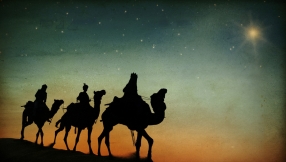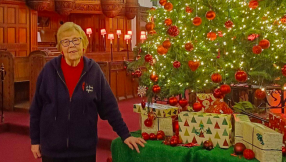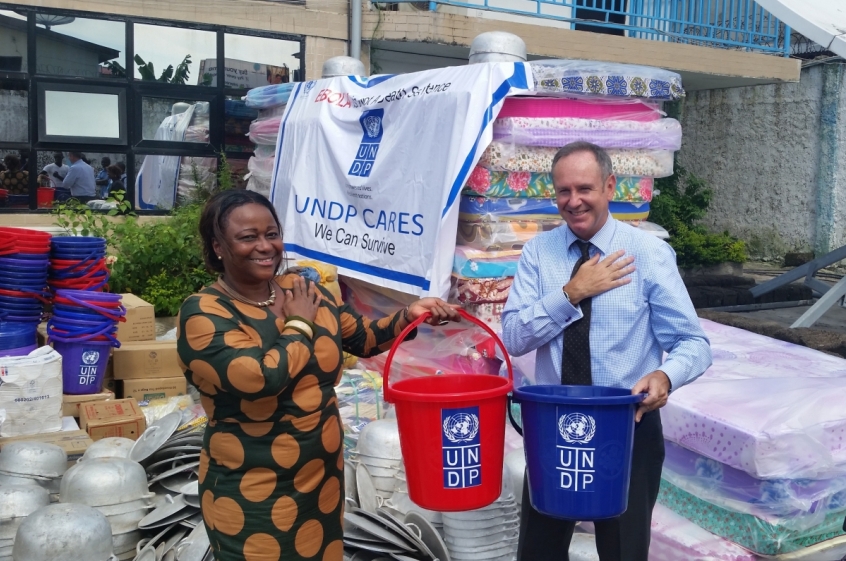
In September 2000, some 189 nations met at the United Nations headquarters in New York and made an unprecedented agreement to work together in eradicating extreme poverty and hunger by 2015.
Eliminating poverty and hunger was just one of eight Millennium Development Goals agreed at the historic gathering. The other seven committed world leaders to taking action to: achieve universal primary education; promote gender equality and empower women; reduce child mortality; improve maternal health; combat HIV/AIDS and malaria among other diseases; ensure environmental sustainability; and put in place a global partnership for development.
Nearly 15 years later and challenges clearly remain, with some MDGs having seen more progress than others - 300,000 women worldwide still die in childbirth each year and gender imbalance remains entrenched in parts of the world.
Nevertheless Joel Edwards, director of Micah Challenge, says there is "a lot to be very pleased about". For one thing, extreme global poverty has been reduced by half since the mid-1990s and some 90 per cent of children have access to full time primary education.
Progress has also been made in reducing the number of malaria and HIV/AIDS sufferers, and fewer children are dying before their fifth birthday as a result of undernourishment and disease.
In 2012, leaders of the world met once again, this time in Rio de Janeiro, for the UN Conference on Sustainable Development and one of the key outcomes was the start of the process towards agreeing Sustainable Development Goals - the successor to the MDGs.
The SDGs will continue being worked out in 2015 and with the new year just weeks away, church and Christian agency representatives met at the UN headquarters in New York this week to discuss how they could best contribute to the formulation and success of these goals.
Organisations present at the Micah Summit included the Micah Network, Christian Aid, World Vision, The Salvation Army, the World Evangelical Alliance and Compassion International.
Opening the conversation was Corinne Woods, of the United Nations Development Programme (UNDP), who said there had been "extraordinary progress" on the MDGs in the last 15 years and that the SDGs were an opportunity to build on that.
While Micah Challenge and the churches stand ready to partner with and support the UN in this, part of the Micah Summit was giving over to discussing concerns about a perceived reluctance at times on the part of the UN to work with the faith community.
Godfrey Yogarajah, executive director of the World Evangelical Alliance's Religious Liberty Commission, said faith organisations could be regarded as lacking in professionalism and not very transparent. The issue of proselytisation "comes up again and again", he said, and admittedly, the faith communities hold viewpoints that are sometimes not acceptable to member states.
However, he argued that the realities of the Islamic State, Al Qaeda, and Boko Haram make it all the more important that the UN does not "ignore the religious context".
"This matter needs to be addressed," he said.
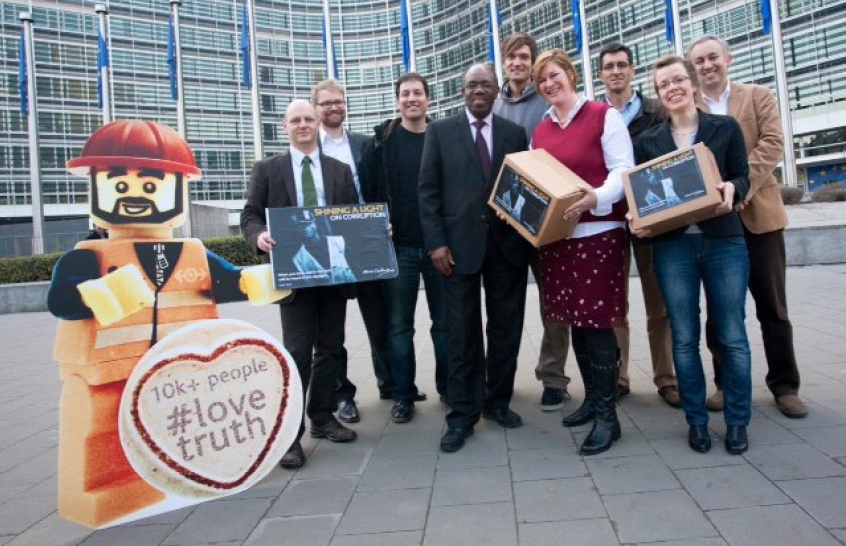
Dr Azza Karam, of the United Nations Population Fund, said that at least half of the projects it is running are carried out through faith bodies and that in UNICEF, the UN's Children's Fund, the proportion is higher . Furthermore, most of the UN's faith engagement is Christian - Dr Karam said this was for the simple reason that the UN finds it easier to identify the key actors within the Christian community than those in other faith communities.
While the UN is actively working with faith groups to provide services in communities around the world, she admitted the "secular language" is the "dominant language" in the UN and that it can be challenging to bring to the table issues of religious engagement because it is "immediately taken personally".
The often negative limelight thrown onto religion in the press as a result of extremism adds an unhelpful dynamic to the context in which the UN engages with faith communities, she continued.
In spite of this, Dr Karam said the UN had realised over the years that religious actors are "the most articulate" in advocacy on behalf of the poor and that they have an established presence across communities. It has also come to see religious leaders as an important resource in conflict mediation.
"The United Nations realised we are the new kids on the block [in service provision]," she said.
That being said, Dr Karam pointed to one aspect of faith communities in particular that she feels makes it hard to work with from the UN's perspective - the sheer number of organisations and voices within them.
"Competing organisations saying they are the best at what they do makes it harder [to engage]," she said.
Woods also acknowledged it wasn't a perfect relationship, but she said the UN was shifting in its partnerships. "Be patient...this is an evolving process," she pleaded.
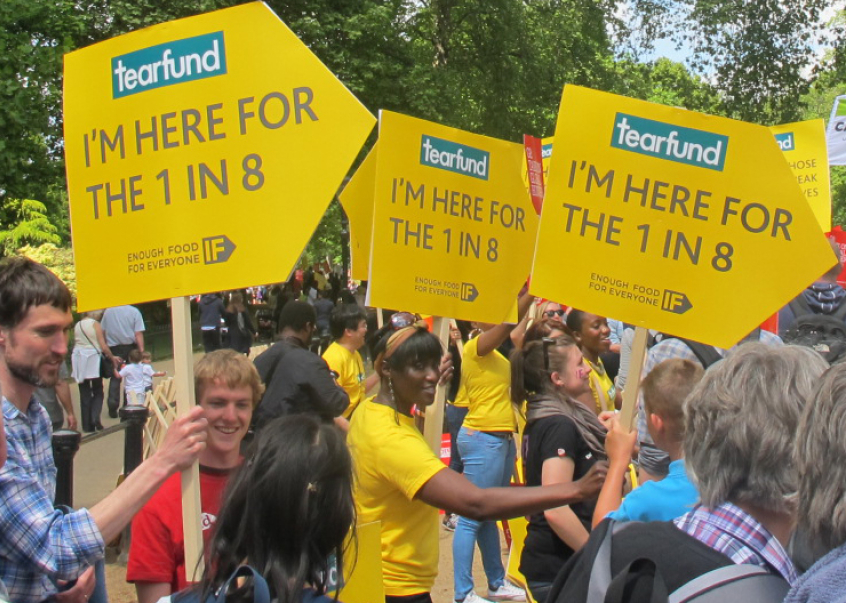
Offering some perspectives on the bigger picture, keynote speaker Professor Miroslav Wolf, of Yale University, said the challenge for faith communities was to present an alternative vision of the good life that people of all faiths and none could feel able to embrace in spite of their differing belief systems.
"If we concentrate on what is common rather than what is different [we] find not only common visions but common motivations," he said.
One area he suggested faith communities could speak into more was the principle of contentment, particularly with a view to re-casting the idea of the contented life in a positive rather than negative light.
"Might we actually need to reference God [and have] goals of human existence that are more than peeking around the next corner?" he said.
Doug Hostetter, director of the Mennonite Central Commitee at the UN, picked up on this theme later, reminding the summit of the popular saying, "Live simply so that others may simply live," and the value of living in contentment "without greed". Demonstrating simple living within the faith community in a way that brings "an understanding that this is important", is also something the faith community was able to offer, he added.
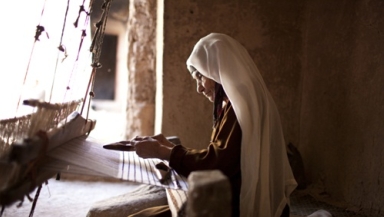
Inclusive concepts are important because according to Edwards, the new SDGs are "trying to be as inclusive as possible without losing focus".
This was evident in UN Secretary-General Ban Ki-Moon's recent report, The Road to Dignity by 2030, which narrows the SDGs down to six key elements: people, planet, prosperity, justice, partnership and dignity.
Thinking about the church's continued engagement in development, Edwards agrees that some aspects of the faith community's relationship with the UN needs ironing out.
"The UN is far more open than it used to be, but it seems that its own infrastructure and limitations still make it a formidable task," he said.
"The UN also needs to learn how to work with faith communities in the particularities of their faith convictions in order to gain traction."
Equally, while there are some collaborative forums like Micah Challenge, Christians "still have some way to go in working together" and there is still "much more to do" in working across faiths as they approach the UN, Edwards said.
For all the challenges and potential for misunderstanding, Hostetter told the summit that the UN needs people of faith "desperately", because they do not represent the interests of member states, but of humanity more widely and of course God.
"The UN needs religious communities to hold it to account to a higher power," he said.
Holding the nations to account has been on the lips of Micah Challenge since it was founded back in 2004 with the vision of ensuring leaders did everything in their power to keep the MDGs on track. As the SDGs take shape, one area Micah Challenge will continue to watch closely is progress on tax dodging.
"Economic performance is key to poverty reduction and good governance preventing tax-dodging is also key. Every year the world economy loses US$1trillion which undermines development," said Edwards.
At times it can feel as though extreme poverty will be around forever, but Edwards is optimistic that in our lifestimes, the hardships that blight so many lives in the world will finally be a thing of the past.
"The ability to deliver on our promises is entirely possible," he said. "It has nothing to do with money and everything to do with our will to do it. As Bono put it so eloquently, we will only get it done when we know we can get it done."













